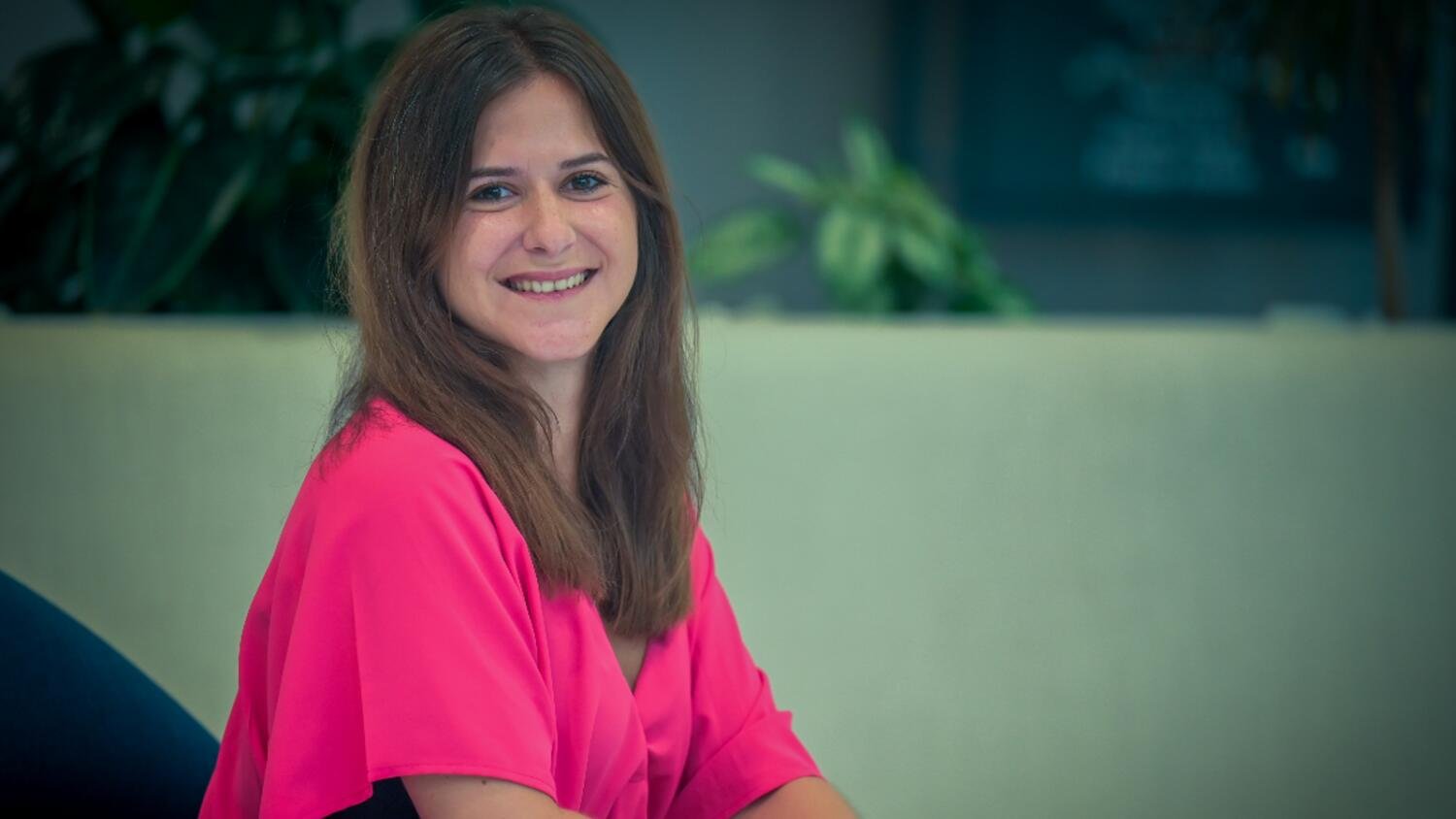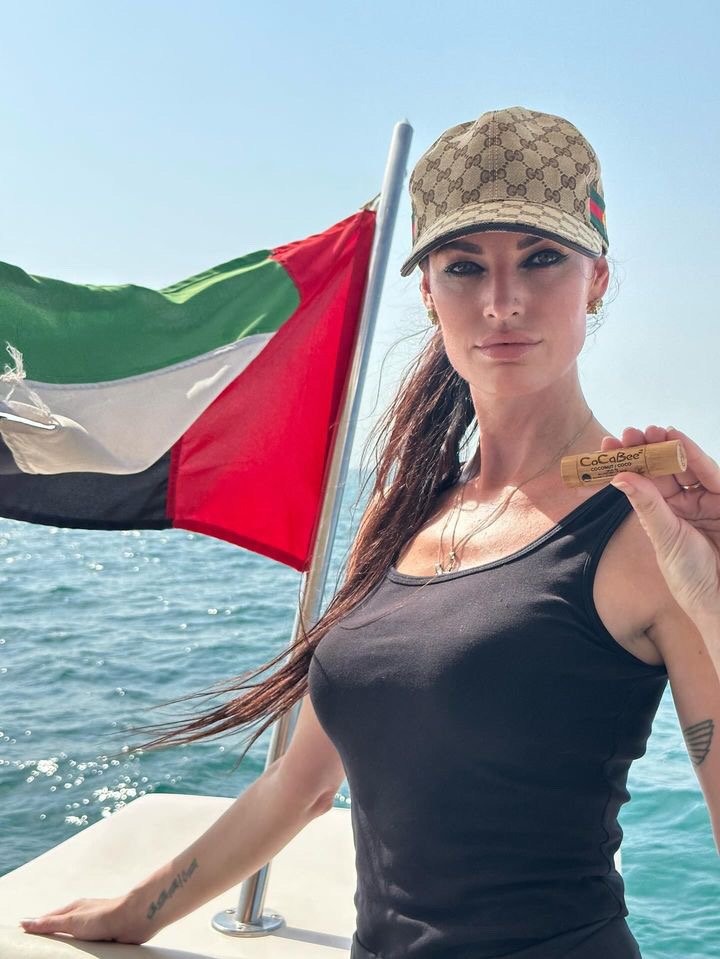‘Having a chronic illness does not imply you are dead.’ Monsarrat believes
When you first encounter Coline Monsarrat, you may believe she’s high on pep pills. Effervescent, supple, twinkly-eyed, and capable of breaking into gales of laughter at the drop of a hat. I meet her in DIFC one morning and have to wait for my cup of coffee to cheer me up, but she’s already full of beans.
Coline is a 31-year-old French chronic illness campaigner who founded her own publishing company, Apicem, in March of this year. “It means mountain in Latin,” she explains, laughing. In reality, her surname, Monsarrat, means “mountain” in Spanish, which is why she chose Apicem as her “brand.” After all, life is all about ascending a mountain and reaching the top.
Read More : Urmila’s last thought while meditating
It’s difficult to believe her list of medical troubles, particularly considering she speaks of each one with a wide grin. She begins by establishing a baseline. “I have hereditary chronic pancreatitis (HCP), which is an extremely uncommon condition — there are only about 10,000 of us in the world,” she exclaims. “My pancreas has been inflamed since the age of five: my genetics are written in such a manner that every time I eat, the enzymes in my pancreas that are produced to digest are really attacking.” Coline has effectively maintained a routine for the last 25 years. “I had an episode every two to three months.” I couldn’t eat or drink, I was curled up in agony, then I recovered and waited for it to happen again a few months later.”
And, having grown up with the sickness, she had no idea what it was like to be normal and “not be in agony.” “I remember when I was a youngster and the episodes would come, and I’d be keeling over in agony, while the other kids were playing… But I never felt sad… instead, I waited for the agony to fade away and then jumped into a ‘regular’ rhythm, running, playing, forgetting everything.”
She attended university in the United States. Coline had returned to Paris after studying in San Diego, California. She was soon given a position as brand manager for a French luxury perfume firm located in Dubai (“retail has always been my thing”), as well as assistance with shop architecture, design, and animation (“I enjoy being creative”).
Coline, who was 25 at the time, relocated here in 2016. “I enjoyed Dubai’s multiculturalism; there were so many ethnicities and languages… I liked how simple life was… It was spotless! … and, of course, the security — as a woman, I felt secure even at 3 a.m., which does not happen in most other places!”
‘My body stopped feeling pain’
Coline’s chronic HCP pain abruptly disappeared five years ago, only a year after she came here. “Oh my God, I thought, maybe my illness has reversed,” she laughs again. However, it was subsequently discovered that her HCP had grown — “so much that I couldn’t feel pain anymore, I’d simply gotten too accustomed to it.”
There was a reason she went for a check-up, which led to this revelation. A few years after she had ceased experiencing pain, she found herself feeling unusually fatigued. “I got a 104-degree fever in January 2020 that wouldn’t go away, so I went to the hospital.” Coline developed sepsis in her kidneys, and she was in organ shock, according to a blood test. “Basically, one of my kidneys was totally blocked by a fossilised stone, and I required emergency surgery,” she says, throwing up her hands in the air, her eyes twinkling and her grin intact. “And, as I already said, my body had ceased experiencing pain, thus I couldn’t sense the suffering that stone was causing in my body.”
There was more bad news in store for her. Her testing also indicated that she was suffering from Type 1 diabetes. “Today, I am the youngest person in France to have HCP while being diabetic,” she declares almost gleefully.
The news did not end there. “I was also informed that I had stage-four rectal prolapse and that I required another operation to correct it.” That failed, therefore there had to be another.”
The bad news at the conclusion of the story was, “I wouldn’t be able to have children.” The good news is that an experience was created: “My operation was done by a robot, and it was quite amazing.” Overall, “I feel fortunate — I met some fantastic physicians at Mediclinic, and I now have my own group of them who are familiar with my situation.”
Coline had done eight procedures by September of last year. “I had taken 16 days off in all — and I had to handle everything by myself at home… In two years, I didn’t take a single holiday.”
But there was something missing on the work front. There was little appreciation.
“That’s when I lost it. Did I truly want to work for someone else? “How come I couldn’t do my own thing?”
A fresh start
Coline resolved to launch her own line of children’s colouring books and “sarcastic adult novels” (more on that later), “where, one day, I would have a varied crew and hire individuals who are differently-abled.” She resigned her job in February and launched Apicem in the United States in March. Amazon presently prints and sends her books to the United States and Europe, but she hopes to extend the market to the Middle East and Asia in the near future. She does the most of the creatives and material, although she sometimes employs freelance artists and writers. “Everything is done online – but I aim to have brick and mortar businesses one day!”
I explain “sarcastic adult literature.” “You know, I talk about ADHD: some say it’s a weakness, but I don’t believe it is if you use it to your advantage… And just because you have a chronic ailment doesn’t imply you’re dead… all of this I try to portray in a humorous manner.” She obviously laughs again. She also intends to launch a wacky clothes sub-brand.
Coline’s realisation
“The insides of your body do not match up with what you look to be,” physicians keep telling Coline. In fact, when she first heard it — after she was diagnosed with diabetes — it stuck with her. So she enrolled in an online psychology school (from Louisiana University) to better understand her excessive optimism. “Apparently, 40% of happiness is genetically programmed,” she chuckles.
Her string of medical catastrophes also taught her that “I might have died at any moment — and I didn’t want to live with regrets.” From now on — for the rest of my life — I will not have any regrets. And nothing will stand in my way of success.”
Read More : Parineeti Chopra will star with Akshay Kumar in an unnamed coal mine rescue drama.







